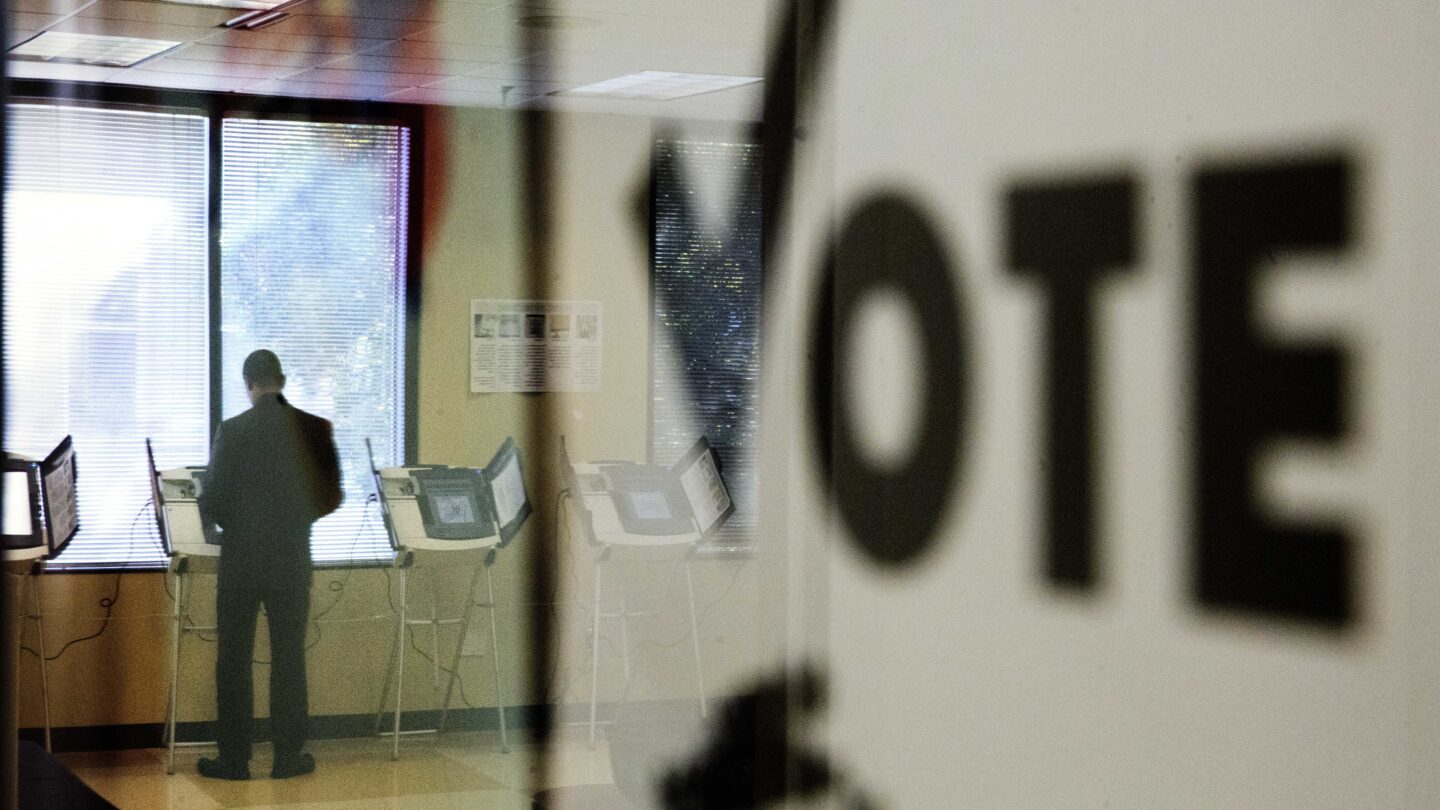Confusion And Questions Over Voting System Ahead Of Competitive Atlanta Election

As metro Atlanta residents prepare to head to the polls tomorrow, some confusion remains around what times they’ll be able to cast ballots. For city of Atlanta voters, polls will be open from 7 a.m. to 8 p.m., said Candice Broce, a spokeswoman with the Secretary of State’s office.
In 2009, now Mayor Kasim Reed defeated Mary Norwood by 714 votes in a runoff.
Eight years later, with seven candidates polling above 5 percent, the race to become Atlanta’s next mayor may be very close again.
But today, there are more public questions about the integrity of the country and Georgia’s voting system, as well as doubts about voter education and whether residents in at least one part of the city will even know how long polling places are open.
“This is a race with low voter turnout and a high number of candidates so accuracy is very important,” said mayoral candidate Cathy Woolard. “This race will probably be decided by handfuls of voters.”
Last week, Woolard said she was concerned about confusion over how long polls would be open Tuesday in the sections of the city of Atlanta that are in DeKalb County.
It may give ground to a legal challenge over the election’s results, she said, although Woolard said she had no plans to bring a suit.
“You want to have an election that is well run and fair, and when there’s things causing problems it does give one concern,” she said.
State law dictates city of Atlanta polling places remain open until 8 p.m. on Election Day. Questions about polling hours came up after Fulton County was granted a court order to keep all voting locations open until 8 p.m. countywide, creating uniformity for a special election to pick a new county commission chair.
A SPLOST referendum is on the ballot countywide in DeKalb, but that county didn’t obtain a court order similar to Fulton for sections that are not in the city of Atlanta. Polling places will close in those areas of DeKalb at 7 p.m. In the city of Atlanta in DeKalb, election officials said between 7 and 8 p.m. voters will cast paper ballots that don’t include the SPLOST.
“We have trained our poll workers, and we do have procedures in place to ensure that it’s a smooth transition,” said Erica Hamilton, DeKalb’s director of voter registration and elections.
But Woolard, and the ACLU of Georgia said there wasn’t enough communication to voters about the different polling hours.
“Once again, elections officials are failing to protect Georgia voters’ sacred and fundamental right to vote,” said Sean Young, legal director of the ACLU of Georgia, in a statement attached to a letter raising the possibility of litigation. “Voters work hard to do their part in our democracy, and they expect elections officials to do the same.”
Until last week, the Georgia Secretary of State’s My Voter Page website inaccurately said all polling places in the entire state, including Atlanta, were open from 7 a.m. to 7 p.m. A spokeswoman, Candice Broce, said a coding issue meant the Secretary of State’s office couldn’t change the information, so it decided to remove polling hour information from the website completely.
“The backend of the website would not accommodate that kind of specificity for this specific group of voters,” Broce said. “Although taking down the hours is our only option, we’re still explaining to people that call with any confusion about the process, that if you’re a city of Atlanta voter on Election Day your polling hours should be 7 a.m. to 8 p.m.”
Young of the ACLU said Fulton and DeKalb have now posted the correct voting hours on their websites, but he wasn’t satisfied with the state’s response to their letter.
“It’s kind of ridiculous that the Secretary of State can’t even put the correct hours on their website,” he said.
Server Erased
In the final weeks of the run up to Atlanta’s mayoral election, a report from the Associated Press revealed a server was erased at the Kennesaw State University Center for Election Systems (CES), which oversees the technical aspects of elections in Georgia.
The erasure occurred just days after a government transparency nonprofit filed a lawsuit seeking to prohibit Georgia’s current elections systems from use in Tuesday’s municipal elections. The suit also sought a review of the system.
The erased server is the same one accessed before the 2016 election by a cybersecurity researcher. Personal information for more than six million voters, passwords for election workers and programming schemes for voting machines were all available for download.
Secretary of State Brian Kemp, a Republican running for governor, called out CES for incompetence. The Secretary of State’s office says it plans to end its contract with CES. Both Kemp, and Merle King, the executive director of CES are defendants in the case.
Last week, the Georgia Attorney General withdrew from the case.
“In this situation, one state defendant in the Curling lawsuit made public statements that took a position adverse to another party that we also represented in the litigation,” said Attorney General Chris Carr in a prepared statement. “Mindful of the rules governing attorney representation of multiple clients, our office withdrew from our representation of all of the state defendants in this litigation.”
Susan Greenhalgh with Verified Voting, an election integrity advocacy group, said the recent security issues at CES are just one more reason for Georgia to institute a system with a paper trail.
In most Georgia elections there’s no paper trail. It’s the same in Delaware, Louisiana, New Jersey and South Carolina, not to mention large parts of other states
“It gives confidence to the voters, and eliminates those questions surrounding the legitimacy of an election or the accuracy of the election count,” Greenhalgh said of a voting system with a paper trail. “You take those questions off the table if you have a paper record.”
The Secretary of State’s office has said repeatedly it’s confident in the security and integrity of Georgia’s elections systems.
Richard Barron, Fulton County director of elections and registration, also said he’s confident in the system, but he’d like to see at least one change.
Barron said state lawmakers need to repeal the law that keeps Atlanta polling places open an extra hour.
“The legislature needs to either make 8 p.m. poll closure statewide for when Atlanta is holding a general municipal election, because of the domino effect this could have with special elections, or they just need to repeal the law that requires Atlanta be open to 8 p.m.,” Barron said.
In a special election for Senate District 6 voters in Fulton County will have an hour longer to vote than their neighbors in Cobb.
Despite all the questions and concerns, Young — with the Georgia ACLU — encouraged people to vote.
“Every single eligible voter in Georgia needs to go out and vote,” Young said. “Regardless of these kinds of things that are going on, we need everyone to work together to have faith in our democracy and to make it strong.”
WABE’s Miranda Hawkins contributed to this story.








